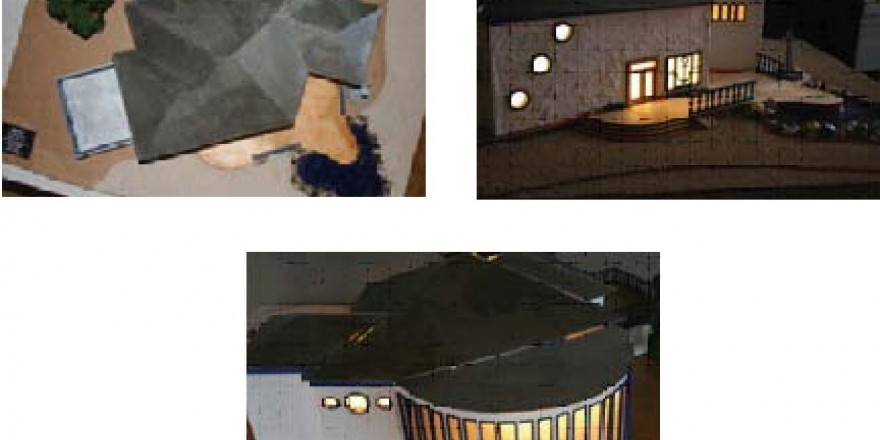Proposal: Innovating Solar Power Systems to Improve Lives
Lilian Kanaya
Futabakai Japanese School
When we think about improving the lives of people around the world, the first obstacle we face is “disparity.” In order to overcome disparity and make the world more equitable, “distribution” and “circulation” must take place. These two words are the key to making the world a better place. It is of utmost importance that the wealthy countries willingly lend a hand to other countries. Rather than giving things, they should “distribute” energy, which is the source of all things.
The fundamental problem comes down to energy, and the energy source I’m thinking of is zero cost. Although the world aspires to become a low carbon society, we currently depend on oil resources that emit carbon dioxide. It is nothing less than human arrogance to exhaust only in the past few centuries these resources that took hundreds of millions of years to make. Depletion of oil resources is foreseeable and atomic energy is accompanied by danger.
Then what kind of power can we get for free from nature? Without a doubt this must be the Sun. I would like to focus on the solar power-the blessings of the Sun shared equally among all people. Let us consider using this for our homes, which is a part of our daily lives. (Refer to photographs) Japan lead other countries on an individual level in that public subsidies for homes that install solar power systems have been available for some time, and households use this to lower their energy bills and sell any surplus. Other advantage is that the Sun does not emit carbon dioxide and therefore its use would prevent global warming.
On a national level, regions such as Africa that have summer conditions year-round are best able to benefit from solar power. These regions could store particularly large quantities of solar power which could be used in daily life for water supplies, air conditioning, lighting and engine. Utilizing it for engine would facilitate a large number of production activities and stimulate economies. African nations could also benefit by exporting stored energy to regions in Northern Europe with white nights. African nations which have been regarded as
developing countries could become countries taking the initiatives to distribute and circulate energy. Perhaps developed countries could provide developing countries with free solar systems in order to help their progress. The developing countries would be the ones to reap the benefits, but this could be the most effective way to uplift the standard of the whole world. Solar energy can be used in many fields such as solar utilities, solar means of transportation and solar street lights, and it would contribute greatly to local communities.
Next, I would like to think about the use of solar power on a global level. It is a project on a UN level in terms of budget and scale to create a large-scale reducing device that uses solar energy to electrolyze water. Reduction would produce oxygen and hydrogen, and the hydrogen could be used as hydrogen gas in air conditioning. Furthermore, I’ve heard that hydrogen is useful medically for aging and cerebral infarctions. Another merit is that it is effective at preventing degradation of industrial products. On the other hand, oxygen is used in human treatments such as sterilization and detoxification. The installation of solar systems in Africa, as I have proposed above, will not only produce energy but also its secondary products, which could raise the level of healthcare in these regions. At any rate, it should be introduced on a trial basis in Africa, and if it’s successful there, it should then be introduced in South America, another developing region.
An agency for the peaceful use of solar energy should be established within the UN and entrusted with overseeing these projects. Then, various countries should send administrators, engineers and medical practitioners. A system could be established so that ordinary companies cooperating in this project could receive some kind of score as an incentive, and be given a reward such as special tax treatment or financial incentive for accumulating this “cooperation scores.” These companies would be recognized globally as progressive environmentally-friendly companies corresponding to their scores.
Put simply, the second key word “circulation” refers to “reuse.” Resources and products are all limited so we have to build technological systems that facilitate the recycling and reuse of these energies.
Partnership and cooperation between all countries in the world is indispensible to the implementation of this dream project. In other words, we can only eliminate disparities and make the world a better place if there is peace in the world, and our perception of which comes first, the chicken or the egg, is being questioned.
Accompanying Photographs:
The miniature house below was designed and built by me.
(Upper left) The black paint on the roof over the main building as seen from above is made of a new type of highly sensitive solar paneling; it doesn’t detract for the house’s appearance because it is the same size as the roof.
(Upper right) View from the back
(Bottom) The glass blocks in the semi-circular front entrance are designed to absorb solar energy.


